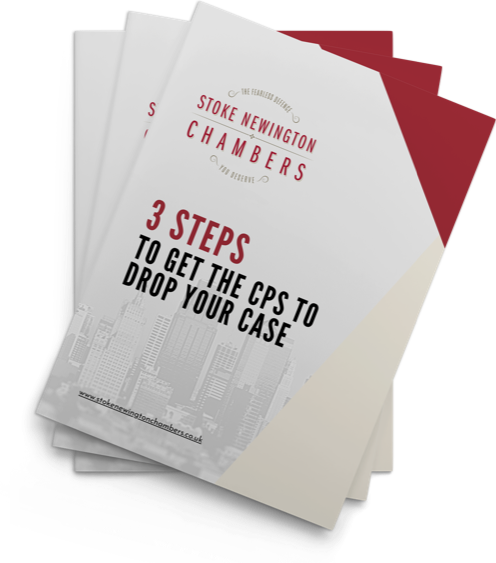
Want to get the CPS to drop the case? Why, “Please, please please” is unlikely to be an effective strategy.
Sometimes, you can get the CPS drop a case.
Getting the Crown Prosecution Service to drop the case is your best possible outcome.
If the CPS drop the case, there’s no trial. This is good news because you are saved from the ordeal of telling your side of the story in court. You are also saved from the prosecutor trying to pick holes in your story in court – as well as the expense of paying for a trial lawyer.
(If you would rather have a trial so, “the truth” can come out, I suggest you scroll to the bottom of this page now and immediately download, “Why most self-represented defendants lose their cases in court: 5 things you need to know”).
What do you do when you think the CPS or Police are unfairly taking the other person’s side?
The problem is that most people (including lawyers) don’t know what they need to do to persuade the CPS to drop a case – and sometimes, because they say the wrong thing, they make the police / CPS prosecutors even more determined to make sure your case goes to trial. (Please also see my post about some solicitors’ potentially disastrous, “please drop the case on public interest grounds” submissions.
Here’s one example of a potentially disastrous approach:
Say, for example, you are a person with ingrained beliefs. Because, “live and let live” is not part of your belief system, you, for example, stand next to the LGBTQ parade and hurl homophobic abuse at one of the marchers. You are arrested and charged with aggravated s5 of the Public Order Act. Is it a smart move for your lawyer to approach the prosecutor on the day of trial saying, “She didn’t know what the words meant”?
The obvious question in response is, “Why did she say them, to a Pride parade marcher, if s/he didn’t know what the words meant?”
Similarly, telling the CPS prosecutor that you’ve never done it before and that you are now really sorry is unlikely to persuade them to drop the case. Instead, they may tell you that might be wonderful mitigation (I’ve blogged about Mitigation, here), but there’s no reason for them to drop the case.
Smarter lawyers, and now you, know that the better move is to apply the legal test that the prosecutors themselves use when deciding whether to proceed with a case.
That test is the Code for Crown Prosecutors. As per the CPS’s own website:
Is there enough evidence against the defendant?
“When deciding whether there is enough evidence to charge, Crown Prosecutors must consider whether evidence can be used in court and is reliable and credible, and there is no other material that might affect the sufficiency of evidence. Crown Prosecutors must be satisfied there is enough evidence to provide a “realistic prospect of conviction” against each defendant”.
Is it in the public interest for the CPS to bring the case to court?
“A prosecution will usually take place unless the prosecutor is sure that the public interest factors tending against prosecution outweigh those tending in favour”.
Are you able to persuade the CPS that they do not have the evidence to prove the case?
Easier said than done.
The only way you will be able to know whether the CPS has the evidence to prove the case is by applying the law to the Crown’s facts.
If, for example, the only evidence the CPS has is that you asked a parade goer to not drop a crisp packet in your garden and then you went into your home and said or did nothing else, then you may want to write to the CPS saying that there is no realistic prospect of a conviction.
I say, “may” as you will want to ensure that you have looked at all of the CPS’s evidence. Remember, at this stage, it’s about their evidence – and not your defence.
The other reason I say, “may” is because a discontinued case can be resurrected if further evidence comes to light. That means it may, in some circumstances, be better for the case to be dismissed at trial or for you to be found Not Guilty after a trial.
The point to remember about the Public Interest Test is that it’s the “Public” and not your private interest that matters.
One other way a case can be dropped before court is if the CPS have not complied with their disclosure obligation.
As I discuss in my pdf below, there is a big difference between the words, “evidence” and “disclosure” – and you will need to have a grip on that distinction before pursuing the point with the CPS or the court.


